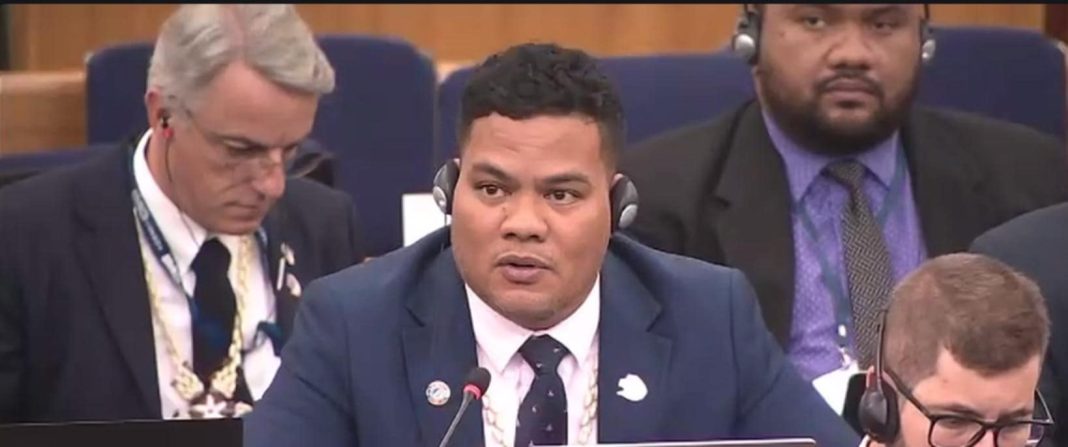On Tuvalu Independence Day, the Pacific nation is calling on the global community to act decisively and swiftly to address the pressing challenges of climate change and maritime decarbonisation.
Speaking at the International Maritime Organisation (IMO), Tuvalu’s Minister for Transport, Energy, Communication, and Innovation, Simon Kofe, stressed the importance of this week’s decisions.
“The outcome this week is fundamental in determining the fate of my country.”
Kofe emphasised that a universal carbon levy is essential to ensure vulnerable nations aren’t left behind in the shift toward a sustainable future.
“We gather here with a shared commitment to decarbonise the global shipping industry… levelling the playing field for all nations,” said Kofe.
With the threat of climate change looming, Tuvalu is calling on the IMO to adopt a universal levy on maritime emissions, which Kofe says is key not only to generate revenue but also to mitigate pollution and support a fair transition to renewable energy.
Palau, also marking its sovereignty, stands with the Pacific Islands as part of the 6PAC+ coalition at MEPC82.
Palau advocates for a universal emissions levy and equitable revenue distribution to ensure climate justice for Small Island Developing States (SIDS).
Palau’s alternate permanent representative to the IMO, Cristiano Aliperta, urged the global community to move from promises to action, saying the time for a fair transition is now.
As MEPC82 enters its second day of discussions, the importance of market-based measures (MBMs) in aligning the shipping industry with global climate goals is clear.
The Pacific’s proposal for a US$150/ton CO2e GHG levy stands out, targeting strong emissions reductions and support for climate-vulnerable nations.
The 6PAC+ proposal, backed by the Micronesian Centre for Sustainable Transport (MCST), is seen as a crucial step in the shipping sector’s decarbonisation, with a commitment to zero GHG emissions by 2050.
MCST stresses that the time for action is now to support the most vulnerable countries while ensuring that the maritime industry contributes to the global climate effort.














